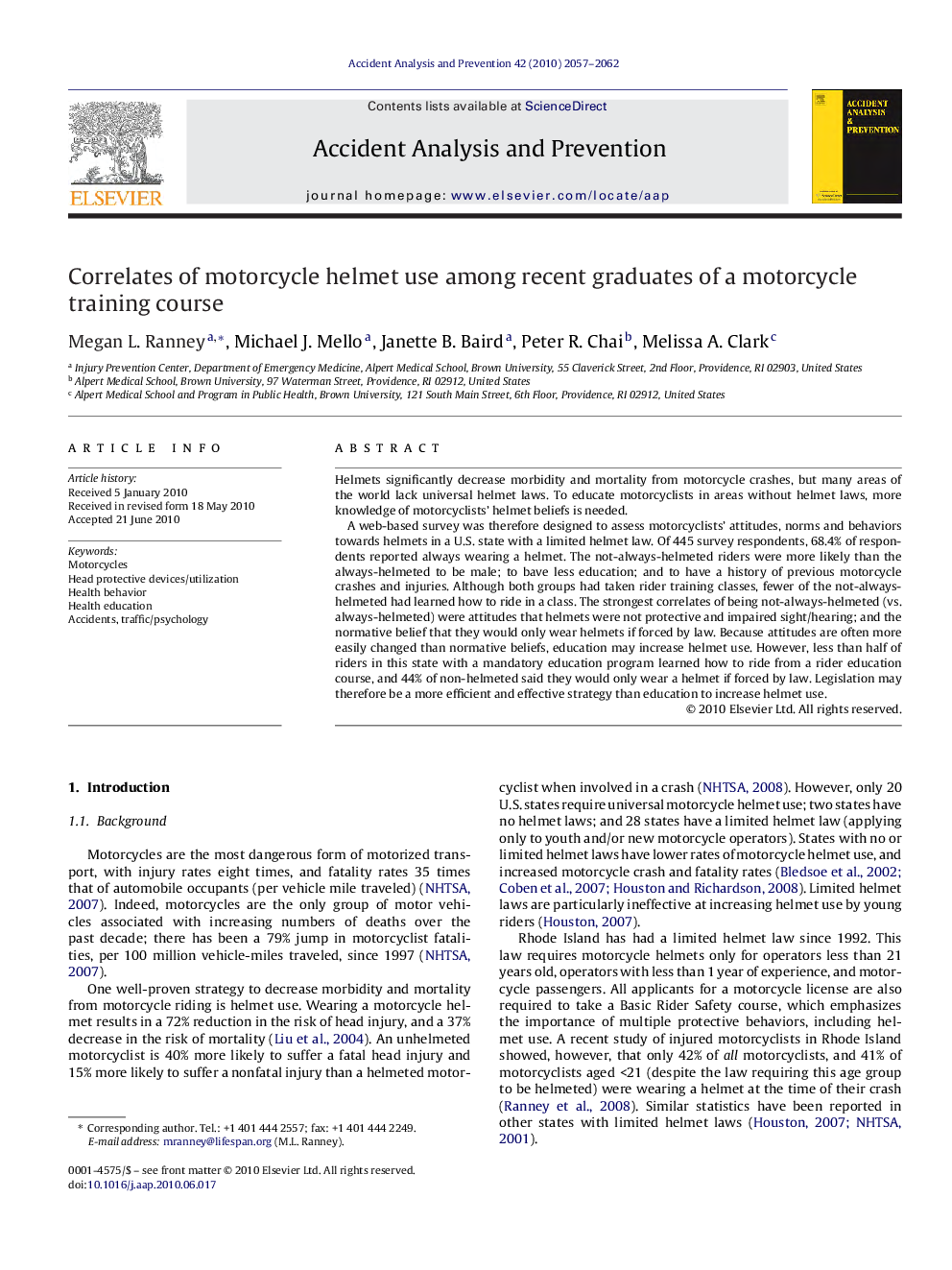| Article ID | Journal | Published Year | Pages | File Type |
|---|---|---|---|---|
| 573188 | Accident Analysis & Prevention | 2010 | 6 Pages |
Helmets significantly decrease morbidity and mortality from motorcycle crashes, but many areas of the world lack universal helmet laws. To educate motorcyclists in areas without helmet laws, more knowledge of motorcyclists’ helmet beliefs is needed.A web-based survey was therefore designed to assess motorcyclists’ attitudes, norms and behaviors towards helmets in a U.S. state with a limited helmet law. Of 445 survey respondents, 68.4% of respondents reported always wearing a helmet. The not-always-helmeted riders were more likely than the always-helmeted to be male; to bave less education; and to have a history of previous motorcycle crashes and injuries. Although both groups had taken rider training classes, fewer of the not-always-helmeted had learned how to ride in a class. The strongest correlates of being not-always-helmeted (vs. always-helmeted) were attitudes that helmets were not protective and impaired sight/hearing; and the normative belief that they would only wear helmets if forced by law. Because attitudes are often more easily changed than normative beliefs, education may increase helmet use. However, less than half of riders in this state with a mandatory education program learned how to ride from a rider education course, and 44% of non-helmeted said they would only wear a helmet if forced by law. Legislation may therefore be a more efficient and effective strategy than education to increase helmet use.
